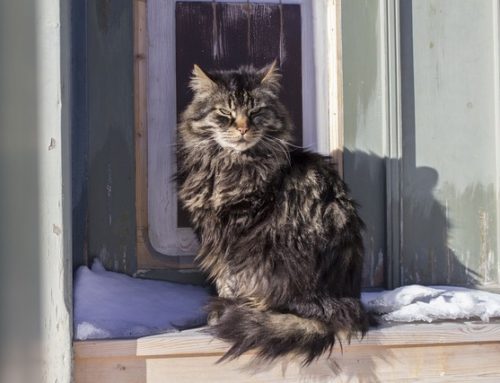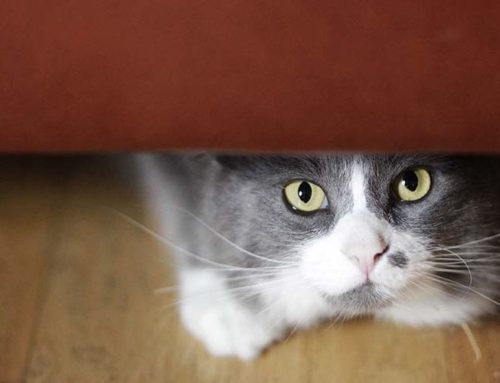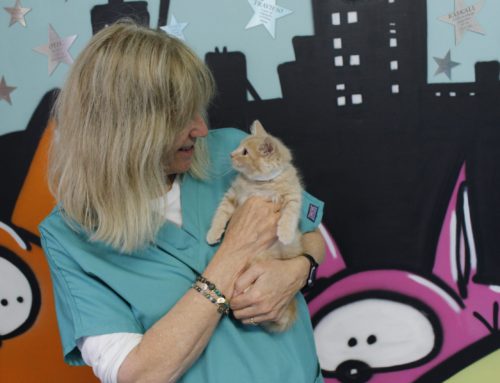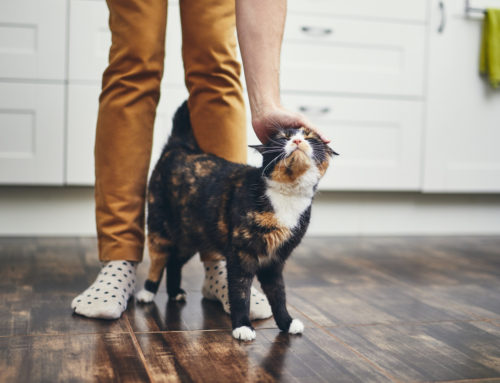Unlike spraying, urination outside the box is NOT a natural behavior for a cat –it’s a sign that something’s not right. If you have a cat that pees on one side of the box, on the bed or the carpet, the very first thing that you must do is schedule an appointment with your veterinarian to rule out any medical conditions. Ninety five percent of urination outside the box has an underlying medical issue, such as FLUTD, Cystitis, Hyperthyroidism (older cats), diabetes mellitus, IBD and many more.
In such medical conditions, the cat usually stops using the litter box because of an association with pain or because of urgency in peeing. Once the issue is cleared, things should return to normal. Signs of urinating outside the litter box:
- Always horizontal
- The target is the floor, bed, couch or rugs
- Substantial amount of urine
- Tail doesn’t quiver
- Frequently only 2 or 3 locations are used for urination
If the cat does not have any medical condition, the next thing to check is the litter box itself.
Litter box issues include:
- Litter box too dirty
- Number of litter boxes available
- Dislike of the litter box or the litter
- Presence of lining in the litter box
- Litter box location
- Litter box too small
Guidelines for litter boxes:
- Number of Litter boxes should equal the number of cats plus one (e.g. 2 cats = 3 boxes)
- The litter box size should be at least one and half times the length of the cat
- Litter boxes should be cleaned at least 2 times a day – the more, the better!
- Litter boxes should be washed every other week and refilled with completely fresh litter
- The best litter box for your cat is uncovered, with no liner
- In multi-cat house, never put a litter box in a cabinet or corner without an escape path
- The best litter is clay, clumping and unscented
- Depth of litter should be no more than 2 inches
There are some other reasons why cats will pee outside the box, such as separation anxiety, stress, if the cat is a victim of another cat being a bully, or they can develop a preference for other surfaces, such as clothing or paper.
Very important note: Never punish or scold your cat, which will only make matters worse. Better find the reason and take actions. If you don’t know how, get some help.
 Mirian Hasani is a Certified Feline Trainer and Behavior Specialist based in Santa Monica. A longtime friend and supporter of FixNation, she spends a generous amount of time at the clinic working with frightened homeless kitties in need of some extra TLC.
Mirian Hasani is a Certified Feline Trainer and Behavior Specialist based in Santa Monica. A longtime friend and supporter of FixNation, she spends a generous amount of time at the clinic working with frightened homeless kitties in need of some extra TLC.





